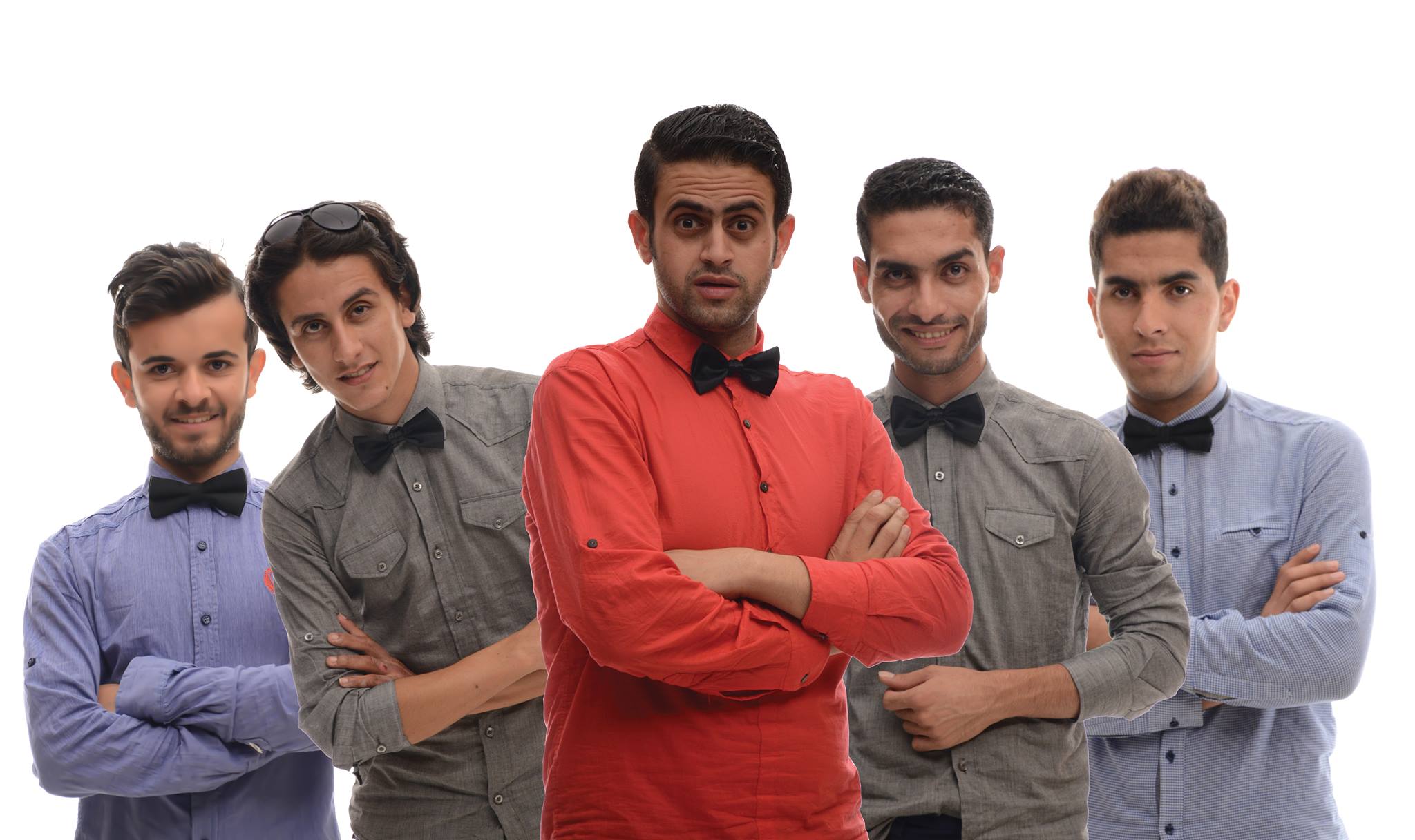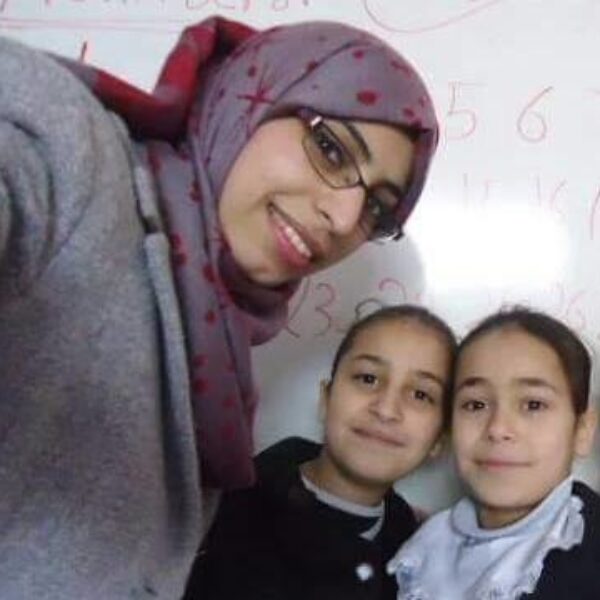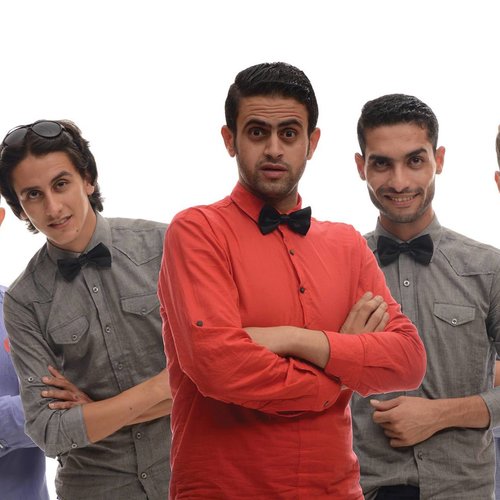They’re happy despite the hardship of their lives. They’re happy even as they shoulder the pain of past assaults and sealed borders. They’re happy because they refuse to give up. They are me, they are you, they are all of us who have realized the sun rises every day, no matter what difficulties we face.
This is the story of five young men who had had enough of a Gaza that was always sad, so they decided to start the first Gazan TV comedy show.
The show, called Bas ya zalama (“Stop it, man!”), tackles the tough realities of Gazan daily life in a funny and creative way, to help people escape a bit, laugh, relax – and hopefully see their reality with new eyes. The Israeli blockade imposed on the Gaza Strip has destroyed the hopes and dreams of youth who long to go abroad for work or study. Thus the team seeks to use humor to turn tears into laughter.
A shared passion for acting, film production and comedy brought these five youths together. Bas ya zalama’s director and producer is 26-year-old journalism graduate Thaer Munir. Its host is a 30-year-old nurse, journalist and talented hockey goalkeeper, Mahmoud Zauiter. One can see from his constant smile, whether on the air or in meetings, how much he loves his work. Thaer met Mahmoud in college and shared his dream of producing a standup comedy program. When Thaer discovered Mahmoud’s talent for acting, the two started making YouTube videos together. Mahmoud then called his childhood friend, 28-year-old Hesham Adnan, to be the show’s producer. Hesham studied multimedia and loves to play soccer. Ibrahim Khalil and Ahmed Assi, the other two young men in the show, also act and help with production. All of them are extremely ambitious and creative, passionate about what they do and fast becoming accomplished professionals.

When the team first started performing, they faced many challenges; they had no sponsors or budget. The group used Mahmoud’s small apartment in Deir Al Balah (central Gaza) as their first studio, and the group pooled its resources and donations from friends and family to buy used cameras. They uploaded their first their YouTube video on May 9, 2012, making fun of slang expressions in the Gazan dialect. The video and others that followed were a huge success and Palestine TV broadcast 30 episodes of their show during Ramadan 2014. Their success allowed them to rent an apartment and turn it into a real studio. The Israeli attack of 2014 left them with a crippling shortage of electricity, but it did not affect their determination or the quality of their work.
Typically, Mahmoud introduces each show by discussing some familiar theme in Gazan life, such as family, love, marriage, motherhood, college exams, etc., so that the fans are anticipating the skit before it begins. Settings are chosen with care, and are usually restaurants, houses and streets that make the scenes familiar and believable. The final result is uncontrollable laughter from viewers suffering from unemployment, fear of assault and the memory of lost loved ones. At the same time, difficult subjects are examined, even such as child labor. In the satirical video below, Mahmoud imitates Jean-Claude Van Damme's Volvo ad, but the two cars must be pushed rather than driven, highlighting Gaza’s fuel shortage.
And now, the group’s talent has been recognized by the London-based Al-Araby TV with a show called Comelogia. However, it continues to be produced and filmed in Gaza. There are comedy programs in the West Bank, but no others are done entirely by Gazans. It has attracted a huge audience not only in Gaza, but also across the Arab world in general. The group is especially gratified by the positive reaction the show has received from Palestinian expatriates. Fans snatch selfies with them and follow them on Facebook, Instagram and Twitter.
The team works to stay in touch with the suffering of their people, and they themselves have not been spared. Both Mahmoud and Hesham lost relatives in the last Israeli assault, in the summer of 2014. “My household consists of 17 families, old and young, including more than 50 kids,” says Mahmoud. “We live together, but the last day of the third attack in the summer of 2014, one phone call destroyed everything when the Israeli air force told us: ‘Evacuate the house!’ Then a drone hit our big house and an F-16 missile smashed the foundation and it soon collapsed.” His cousin, Abed Al-Aziz Zuiter, was killed in the assault.
Yet, even then, Mahmoud and his teammates worked on two new episodes as a declaration that war could not kill life.
“We love life as much we can.” — Mahmoud Darwish
Posted December 15, 2015










